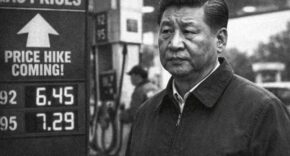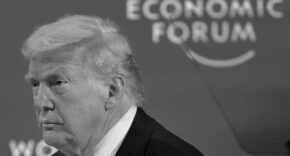In a striking departure from its once-celebrated status as a global hub of finance, culture, and tourism, Hong Kong finds itself grappling with the consequences of Beijing’s iron-fisted policies. The city’s transformation from a vibrant, autonomous region into a cautionary tale of suppression and decline is a complex saga marked by several key failures.
1. The Stranglehold of Article 23
The recent implementation of Article 23 stands as a stark symbol of the suppression of freedom in Hong Kong. This security law, passed by the city’s legislature under Beijing’s directive, has effectively abolished the right to free thought, speech, and action, subjecting residents to severe penalties for perceived dissent. The measure underscores a direct contradiction to China’s commitments under the Sino-British Joint Declaration, betraying promises of autonomy and freedoms guaranteed to Hong Kong post-handover.
2. A History of Broken Promises
The enactment of Article 23 also signifies a broader trend of Beijing’s disregard for international agreements and norms. The betrayal of the 1984 Sino-British Joint Declaration, which promised “one country, two systems” for 50 years, reflects a deliberate strategy to assert control over Hong Kong, undermining the city’s global stature and the trust of the international community in China’s word.
3. The Shadow of Political Repression
Hong Kong’s descent is further marked by increasing political repression and judicial injustices. The persecution of pro-democracy activists, the prosecution of the Hong Kong 47, and the ongoing trial of Jimmy Lai are emblematic of the misuse of the legal system to crush opposition. Such actions have eroded the rule of law and signaled a departure from the city’s legal traditions, entrenching Beijing’s authoritarian grasp.
4. Economic Turbulence and the Exodus of Business
The political instability and repressive policies have precipitated an economic decline, with foreign companies exiting and investment waning. The vague and expansive definitions of crimes under the new security laws have sowed fear and uncertainty, undermining Hong Kong’s position as a leading business destination and contributing to its economic woes.
5. Censorship and the Suppression of Culture
The crackdown has extended into the realms of media and culture, with strict censorship laws stifling creativity and expression. This cultural repression has not only impoverished Hong Kong’s dynamic cultural landscape but also prompted a brain drain, as artists and professionals seek opportunities in more liberal environments.
6. Facing International Isolation
Beijing’s aggressive posture and the dismissal of international criticism have isolated Hong Kong on the global stage. The enactment of laws with extraterritorial reach and the contemptuous response to global concerns have damaged the city’s international reputation, further diminishing its standing as a global center.
7. A Future in Jeopardy
The culmination of these factors has led to a significant loss of confidence in Hong Kong’s future, both among its residents and in the international community. The pervasive sense of uncertainty and the erosion of freedoms have cast a long shadow, calling into question the viability and identity of Hong Kong in the years ahead.
Hong Kong’s unraveling serves as a poignant reminder of the consequences of failed promises and lost freedoms. It stands as a testament to the failure of Beijing’s heavy-handed approach, marking a tragic departure from the city’s past as a beacon of prosperity and autonomy. The saga of Hong Kong is not just a regional concern but a global cautionary tale, highlighting the importance of upholding international norms, the rule of law, and the fundamental rights that define free societies.
This is the future that Taiwan faces if China gets its wish of unification (i.e. military takeover).











